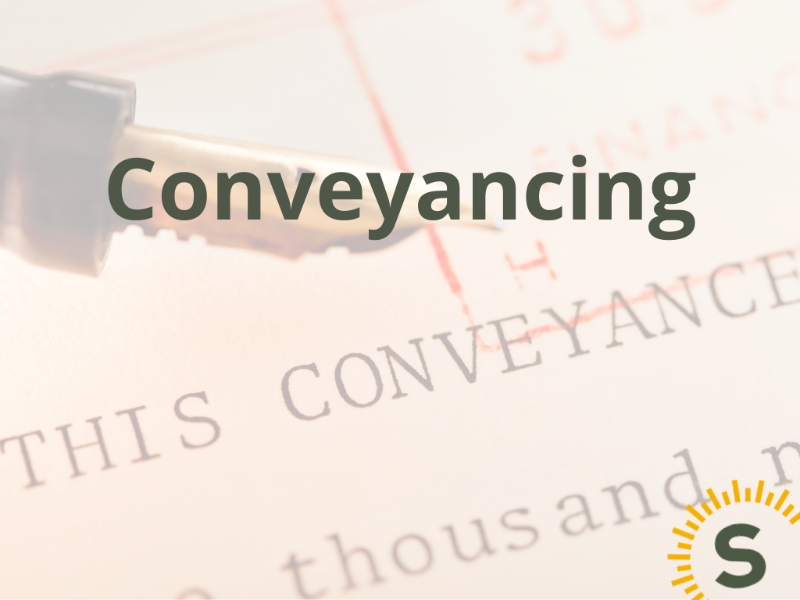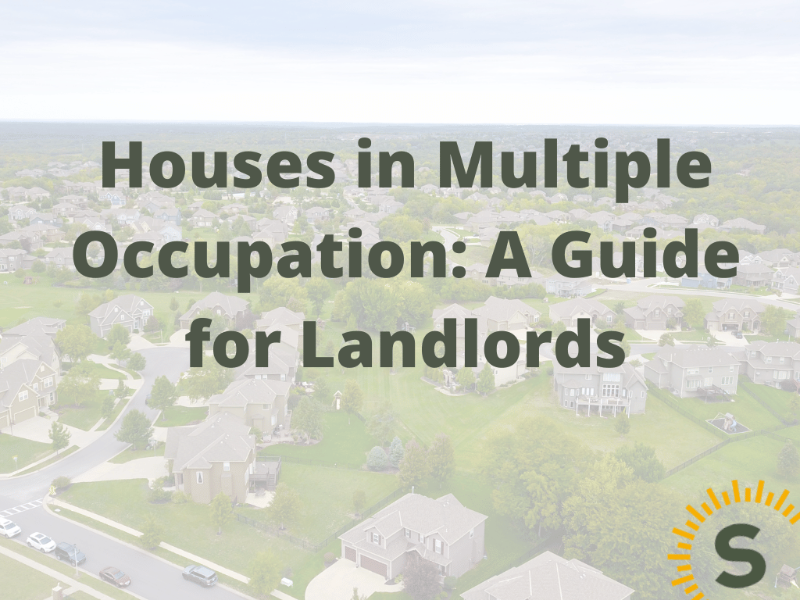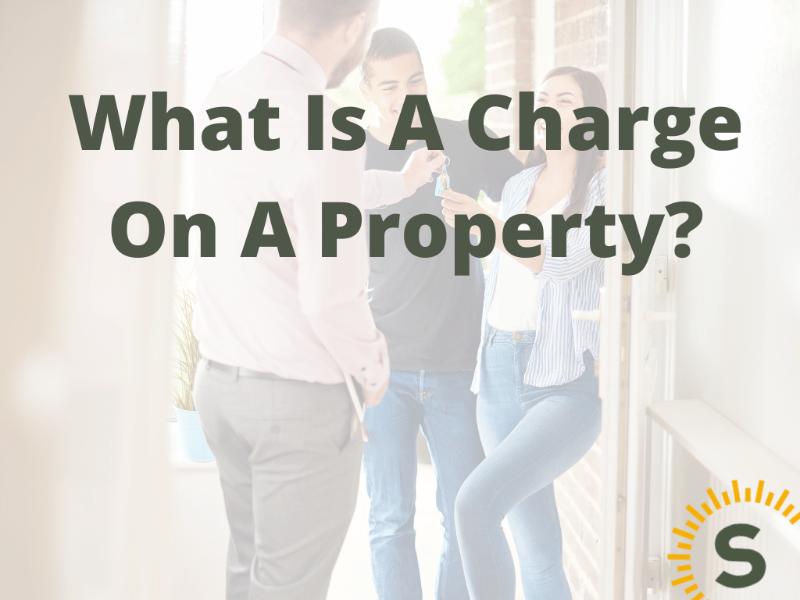
You're buying a house and you've been told to get your conveyancing in order. What on earth is that? If like me you originally thought it was something to do with construction, you'd be wrong. Don't worry, in this insight, we will cover all you need to know and answer the question, what is conveyancing?
Conveyancing is the legal process of transferring a property's ownership from one person to another. It involves handling money, preparing and signing legal documents, and transferring title of the property.
Typically, a qualified conveyancer or a solicitor handles conveyancing. Conveyancing is required in the following scenarios:
The cost of conveyancing varies depending on factors such as the location of the property, the complexity of the transaction, and the amount of work involved. On average, conveyancing fees range from £500 to £1,500 for a typical property sale or purchase. Additional costs, such as stamp duty, land registry fees, and search fees, may also apply.
It is recommended to obtain quotes from several conveyancers to compare prices and services offered.
Conveyancing disbursements are the costs and expenses incurred by a conveyancer on behalf of the client during the conveyancing process. These costs may include search fees, stamp duty, registration fees, and other legal costs associated with the transfer of property. Examples of the searches when buying a house to pay for include:
Conveyancing might take a few weeks to many months, depending on the circumstances,
Factors such as the complexity of the transaction, the availability of all parties, and any potential legal concerns all play a role in determining the precise timing. To guarantee a quick and easy process, it's critical that both the buyer and the seller cooperate closely with their conveyancer.
Research and compare conveyancers in your area to find one with a good reputation and experience in the type of property transaction you are dealing with. Your Mortgage adviser will typically have a list of conveyancers they work with whom they could appoint on your behalf.
Allow your Mortgage Adviser to contact the conveyancer to discuss your needs and ask any questions you may have about their services and fees.
Request a quote for their services and compare it to other quotes to ensure you are getting a fair price.
Once you have chosen a conveyancer, sign a contract with them outlining the services they will provide and the fees they will charge.
Communicate with your conveyancer throughout the process and provide them with any necessary documents or information to ensure a smooth and successful transaction.
Yes, the best way to determine a comparison for the cost of conveyancing services is to speak to your Mortgage adviser who can quote your conveyancing work directly from their panel. This will allow you to take advantage of the tools available, whilst finding competitively priced conveyancers.
Location can matter when finding a conveyancer, but it is not required, and often cost savings can outweigh the benefit of going local.
A conveyancer who is located in the same area as the property being bought or sold may have a better understanding of the local property market and any potential issues that may arise. Additionally, if there are any issues or disputes during the conveyancing process, it may be easier for the conveyancer to resolve them if they are located nearby.
However, with the advancements of technology, it is no longer essential to have a local conveyancer, ultimately the same checks are carried out regardless of location and by appointing a solicitor who is not local you may yourself saving money.
If you choose to move your mortgage to another provider, you will need to arrange conveyancing work. The conveyancer will handle the transfer of legal Charges and ensure that all necessary documents and paperwork are in order for the remortgage to be completed. The cost of conveyancing during a Remortgage is often covered by your new lender, however, service levels may vary.
If you have specific requirements or additional needs, such as transferring equity, you may decide it best to appoint your own conveyancer. If you appoint your own, you can agree on upfront costs, what work is required and the time frames achievable
It is difficult to say whether conveyancers are generally cheaper than solicitors, as the cost of legal services can vary depending on several factors, such as the complexity of the matter being handled and the location of the solicitor or conveyancer. In general, conveyancers may be more affordable than solicitors because they typically specialise in a specific area of law, such as property law, whereas solicitors are trained to handle a wider range of legal matters. This specialisation allows conveyancers to be more efficient and cost-effective in their work.
A conveyancer should be ready as soon as you have an offer on a property accepted and are ready to proceed. Your conveyancer will be needed to handle the legal aspects of the transaction, including reviewing, and negotiating the contract, conducting title searches, and preparing legal documents. It is important to have a conveyancer in place before signing any contracts or making any offers on a property.
If you are looking for advice around appointing a conveyancer, you can talk to a Mortgage adviser who will be able to provide you options from a panel of conveyancers. To get started, complete the Sunny Fact Find. The answers you provide us are used to find the most suitable adviser for you. An adviser will then contact you for a no obligation conversation on how they can help and you can decide how to proceed.
Read More: How to put pressure on Solicitors

Stuart is an expert in Property, Money, Banking & Finance, having worked in retail and investment banking for 10+ years before founding Sunny Avenue. Stuart has spent his career studying finance. He holds qualifications in financial studies, mortgage advice & practice, banking operations, dealing & financial markets, derivatives, securities & investments.
 No minimum
No minimum  Newcastle-under-Lyme, Staffordshire
Newcastle-under-Lyme, Staffordshire Free Consultations
Free Consultations
 No minimum
No minimum  No obligation consultation
No obligation consultation
 No minimum
No minimum  No obligation consultation
No obligation consultation
 No minimum
No minimum  Free Consultations
Free Consultations
 No minimum
No minimum  No obligation consultation
No obligation consultation
 No minimum
No minimum  No obligation consultation
No obligation consultation
 No minimum
No minimum  Free Consultations
Free Consultations
 No minimum
No minimum  Free Consultations
Free Consultations
 No minimum
No minimum  Coatbridge, Lanarkshire
Coatbridge, Lanarkshire Initial or Ongoing Consultation Fees
Initial or Ongoing Consultation Fees
 No minimum
No minimum  Initial or Ongoing Consultation Fees
Initial or Ongoing Consultation Fees
 £21,000 +
£21,000 +  Initial fee free consultation
Initial fee free consultation
 London, Greater London
London, Greater London No obligation consultation
No obligation consultation
 No minimum
No minimum  No obligation consultation
No obligation consultation
 No minimum
No minimum  Initial fee free consultation
Initial fee free consultation
 No minimum
No minimum  No obligation consultation
No obligation consultation
 No minimum
No minimum  No obligation consultation
No obligation consultation
 No minimum
No minimum  No obligation consultation
No obligation consultation
 No minimum
No minimum  Initial fee free consultation
Initial fee free consultation
 No minimum
No minimum  No obligation consultation
No obligation consultation
 No minimum
No minimum  Initial fee free consultation
Initial fee free consultation
 £101,000+
£101,000+  Bishop's Stortford, Hertfordshire
Bishop's Stortford, Hertfordshire No obligation consultation
No obligation consultation
 No minimum
No minimum  Derry / Londonderry, County Derry / Londonderry
Derry / Londonderry, County Derry / Londonderry Free Consultations
Free Consultations
 No minimum
No minimum  Stockton-on-Tees, County Durham
Stockton-on-Tees, County Durham Free Consultations
Free Consultations
 No minimum
No minimum  Initial fee free consultation
Initial fee free consultation
 No minimum
No minimum  Cheltenham, Gloucestershire
Cheltenham, Gloucestershire No obligation consultation
No obligation consultation





Our website offers information about financial products such as investing, savings, equity release, mortgages, and insurance. None of the information on Sunny Avenue constitutes personal advice. Sunny Avenue does not offer any of these services directly and we only act as a directory service to connect you to the experts. If you require further information to proceed you will need to request advice, for example from the financial advisers listed. If you decide to invest, read the important investment notes provided first, decide how to proceed on your own basis, and remember that investments can go up and down in value, so you could get back less than you put in.
Think carefully before securing debts against your home. A mortgage is a loan secured on your home, which you could lose if you do not keep up your mortgage payments. Check that any mortgage will meet your needs if you want to move or sell your home or you want your family to inherit it. If you are in any doubt, seek independent advice.